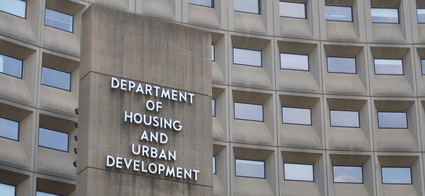Senate Finance Chairman Seeks Expanded Taxation of Sovereign Wealth Funds’ Real Estate, Other Investments

Legislation introduced this week by Senate Finance Chairman Ron Wyden,
above, would repeal tax rules applicable to foreign governments and their investment arms (“sovereign wealth funds”) if that government has more than $100 billion invested globally and does not qualify for an exception. (Wyden’s
news release and
one-page summary, July 26)
Section 892
- Citing specific concerns related to the recent merger between the Professional Golf Association (PGA) Tour and the Saudi Public Investment Fund, Chairman Wyden’s expansive bill—the Ending Tax Breaks for Massive Sovereign Wealth Funds Act—would deny application of the tax code’s long-standing section 892, which exempts certain passive income earned by foreign governments from U.S. income taxation.
- Countries that have a free trade agreement or tax treaty with the United States could continue to qualify for section 892, provided they are not listed as a "foreign country of concern"by the U.S. State Department. According to Chairman Wyden, the legislation would apply to China, Saudi Arabia, the United Arab Emirates, Kuwait, Qatar, and Russia. (PoliticoPro, July 26)
Foreign Investment & CRE

- Some of the listed countries are large investors in U.S. commercial real estate and represent a key source of capital for job-creating U.S. real estate investment.
- “Section 892 is nearly as old as the tax code itself, and the tax principle it represents—sovereign immunity for foreign governments—is older than the tax code. Disrupting and rewriting these rules on a whim because of a single transaction is risky and unwarranted. The consequences for U.S. real estate, jobs, and the economy could be severe,” said Real Estate Roundtable President and CEO Jeffrey DeBoer, above.
- “The United States is able to attract foreign capital for jobs and productive real estate investment because foreign investors have confidence in our rule of law. They believe the USA is a safe place to invest,” continued DeBoer. “When leading lawmakers threaten to overturn 100-year-old tax policies because of a single, unpopular transaction, it raises legitimate concerns. Congress should tread carefully in this area and fully understand the potential implications of its action.”
- CBRE’s Global Head of Capital Markets Christopher Ludeman stated, “Sovereign wealth funds are among the largest and most important investors in global real estate, especially in the U.S. where, by conservative estimates, they have invested over $25 billion since 2021. At a time when capital flows into real estate are scarce, transaction volume is down by 53% in the first half of 2023 compared to the first half of 2022. In this environment, SWFs are an important source of capital, investing close to $9.7 billion this year alone. This is the wrong time to put any new restrictions on capital flows into real estate, which this bill would do.”
Established Law

- The section 892 tax exemption for foreign governments does not extend to commercial activities or active ownership of U.S. real estate. Income from an interest in a U.S. real property-holding corporation that a foreign sovereign does not control is generally exempt from U.S. tax as income from an investment in a U.S. security—consistent with the general rule that section 892 is limited to passive investments.
- Over the years, Treasury guidance and IRS rulings have further defined the scope of the provision and its interaction with other tax provisions, such as section 897 and the Foreign Investment in Real Property Tax Act (FIRPTA).
- The original version of section 892 was enacted in 1917 and is based on Supreme Court case law that dates to 1812. Similar foreign government tax exemption regimes apply in other countries, such as the United Kingdom, Canada, Australia, and Japan. See JCT, Economic and U.S. Income Tax Issues Raised by Sovereign Wealth Fund Investment in the United States (2008).
The Wyden bill includes grandfathering rules that would apply to certain investments through 2025. The rules would cover capital deployed or committed prior to enactment and investments in publicly traded companies, provided the investment is less than 10 percent. Any grandfathering benefits would expire beginning in 2026. (Wyden’s
one-page summary of the bill, July 26)
# # #
 Legislation introduced this week by Senate Finance Chairman Ron Wyden, above, would repeal tax rules applicable to foreign governments and their investment arms (“sovereign wealth funds”) if that government has more than $100 billion invested globally and does not qualify for an exception. (Wyden’s news release and one-page summary, July 26)
Section 892
Legislation introduced this week by Senate Finance Chairman Ron Wyden, above, would repeal tax rules applicable to foreign governments and their investment arms (“sovereign wealth funds”) if that government has more than $100 billion invested globally and does not qualify for an exception. (Wyden’s news release and one-page summary, July 26)
Section 892


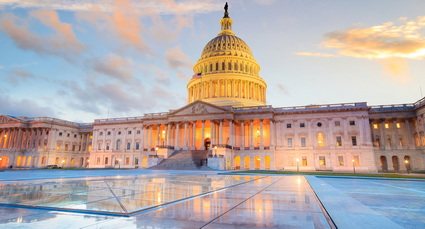
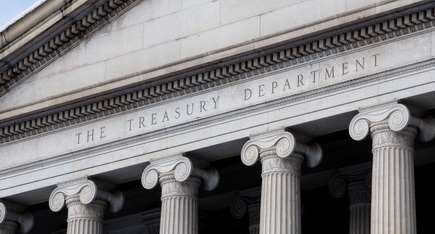
 Federal bank regulators this week approved a sweeping set of proposed changes that would increase capital requirements for the nation's largest banks by as much as 20%, which could significantly affect liquidity available for commercial real estate transactions, impact asset values, and influence economic growth. Dissenting votes on the proposed rulemaking revealed rare disagreement among regulators, and Fed Chairman Jerome Powell signaled a cautious approach to consideration of any final rule as a 120-day public comment period begins. (Axios and PoliticoPro, July 27)
New Capital Framework
Federal bank regulators this week approved a sweeping set of proposed changes that would increase capital requirements for the nation's largest banks by as much as 20%, which could significantly affect liquidity available for commercial real estate transactions, impact asset values, and influence economic growth. Dissenting votes on the proposed rulemaking revealed rare disagreement among regulators, and Fed Chairman Jerome Powell signaled a cautious approach to consideration of any final rule as a 120-day public comment period begins. (Axios and PoliticoPro, July 27)
New Capital Framework
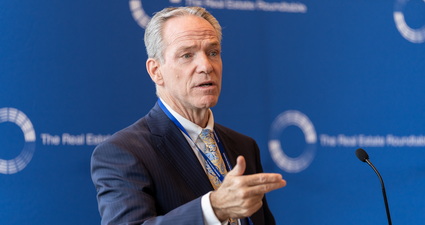
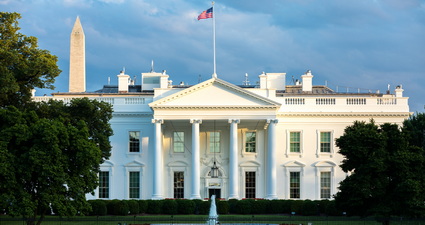 The Biden administration announced a new initiative yesterday to increase the energy-efficient affordable housing supply, including a multi-agency working group to “develop and advance federal funding opportunities” for commercial-to-residential reuse. (Reuters and HousingWire, July 27)
Support for Office Conversions
The Biden administration announced a new initiative yesterday to increase the energy-efficient affordable housing supply, including a multi-agency working group to “develop and advance federal funding opportunities” for commercial-to-residential reuse. (Reuters and HousingWire, July 27)
Support for Office Conversions
